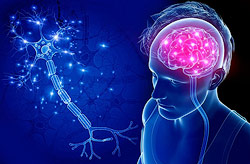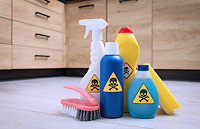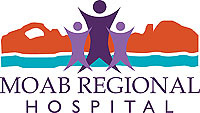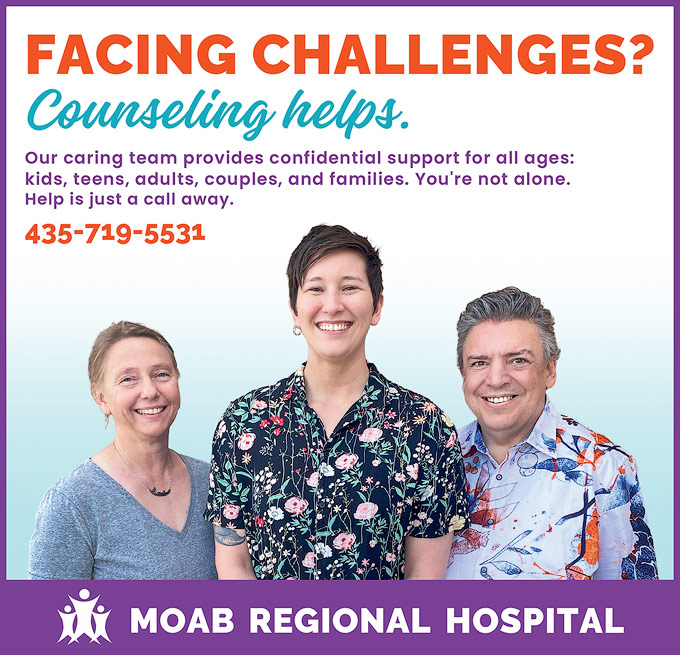|
|
HEALTHY HAPPENINGS - January 2024
|
Maybe You Don't Need Hormone Replacement
by Ray Andrew, MD
|
Last month I explained that symptoms that are usually attributed to dysfunction of the mind often don’t stem from the head at all. In other words, it’s not “all in your head” like you may have been told. Instead, the brain is merely the victim of deficiencies, toxicities, or infectious interference to its normal function. This month, we will look at another key facet of health that is in your head, but not in the way you think it might be.

One key deficiency, testosterone, can have profound effects on your mood, anxiety, concentration, energy, and so much more. But it also affects your likelihood of developing heart disease, stroke, Alzheimer’s, diabetes, arthritis, osteoarthritis, and prostate cancer in men, breast cancer in women.
A couple of years ago, even though I felt fine, I thought it would be a good idea to check my own vitality hormones. Getting into my 50s (which my children think is old), and considering the fact that I spend much of my working day helping people get their hormones back, I thought it would be wise to see where I stood. Discovering my testosterone to be hovering consistently in the 500s, I knew something had to change. The function of every living cell in the human body depends on levels of this hormone being optimal. As a man, you don’t want yours to be any lower than 700 since that increases your risks of so many chronic diseases. Although women don’t need it nearly that high, you still face the same risks if it isn’t high enough. In fact, because laboratory reference ranges are so dangerously low, if your result isn’t considered “high” by their standards, your long-term health is in trouble.
 With my own level being so abysmal, I knew I could easily take testosterone for the rest of my life, as many of our patients do, with life-changing results. But there was something else in my labs that made it clear this was the wrong approach in my case: My FSH was normal. FSH is one of the signals from the brain to the testes (or ovaries). When testosterone production is poor, the brain is designed to send a stronger signal to the testes to kick them into action. Because my brain was sending a weak signal, it was clear to me that the problem was in my brain, not my testes. In other words, my testes could probably make enough testosterone if only they received the right signals. With my own level being so abysmal, I knew I could easily take testosterone for the rest of my life, as many of our patients do, with life-changing results. But there was something else in my labs that made it clear this was the wrong approach in my case: My FSH was normal. FSH is one of the signals from the brain to the testes (or ovaries). When testosterone production is poor, the brain is designed to send a stronger signal to the testes to kick them into action. Because my brain was sending a weak signal, it was clear to me that the problem was in my brain, not my testes. In other words, my testes could probably make enough testosterone if only they received the right signals.
This understanding prompted me to look for metabolic dysfunction, infections, and toxins that can impair hormone signaling in the brain. Soon, I embarked on a program of timed restrictive eating (also known as intermittent fasting) and cellular detoxification. The detoxification protocol included combinations of vitamins, minerals, amino acids, fatty acids, true binders, herbs, phospholipids, chelating agents, polyphenols, and probiotics.
Within a few months, my testosterone was consistently back in the 800s, a nice healthy level.
If you are a woman, you, too, may have toxins (or infections or metabolic dysfunction) impairing your hormone production. But once you are in menopause, by definition you have run out of eggs, called oocytes. It’s the oocytes that make the majority of your testosterone, estrogen, and progesterone. In menopause, hormone replacement will be necessary to restore your youthful feeling and function. If you are still having periods but have symptoms of hormone deficiencies, you can take hormones directly. Or you may be able to restore healthy function by repairing your gut lining and revitalizing the nerves that control your ovaries.
Needless to say, sometimes it is all in your head, but it’s not what most people think. Through a proper medical evaluation, you can find out what toxicities, infections, deficiencies, or imbalances are going on so you can get back in the game again soon. Just because it’s “in your head” doesn’t mean you’re making it up. It doesn’t mean you’re “just” depressed. And even if you are depressed, this doesn’t mean you need a drug to suppress it. You can discover and treat the cause so that, not only can your hormones improve, but also your entire health, now and for years to come.
If you want to get to the bottom of what is sapping the life out of you, and you find the idea of “it’s all in your head” unsatisfactory, call Prestige Wellness Institute at (435) 210-0184 for a comprehensive evaluation and treatment plan. Just because you keep having birthdays doesn’t mean you have to settle for declining health, no matter how old you are.
|
Stay Merry: 5 Tips to Beat Winter Blues After the Holidays
by Hospital Staff
|
After the festive lights fade and the holiday tunes quiet down, the reality of January and February can hit us hard. Post-holiday blues are common during these months, marked by a letdown after months of celebration. Coupled with the dark and cold winter days, it's no surprise that many of us feel a bit down. But fear not! With the right strategies, you can tackle the winter blues head-on and face the challenging months with resilience and positivity.

1. Soak Up the Sun: During winter, shorter days can affect our mood and energy levels. Fight off the darkness by getting as much natural light as possible. Take short breaks outside, even if it's just a quick walk around your neighborhood. Consider using a light therapy box, especially if you struggle with Seasonal Affective Disorder (SAD). And remember to brighten up your living and working spaces with warm lighting for a more uplifting atmosphere.
2. Keep Moving: Exercise is a fantastic remedy for winter blues. It releases endorphins, the body's natural mood boosters, and helps combat feelings of tiredness and lethargy. Find an activity you enjoy, whether it's a winter sport, a brisk walk, or an indoor workout. Regular exercise not only lifts your spirits but also contributes to your overall physical health, making it a powerful weapon against the post-holiday slump.
3. Create Cozy Vibes: Bring a touch of "hygge" into your life – that Danish concept of creating a cozy and comfortable atmosphere for well-being. Invest in soft blankets, warm lighting, and comfy furnishings to make your space inviting. Surround yourself with things that bring joy, like scented candles or your favorite books. By infusing your surroundings with hygge, you'll turn your space into a winter haven that radiates warmth and contentment.
4. Socialize and Connect: The post-holiday season can leave us feeling isolated, especially as social events wind down. Fight loneliness by actively seeking social connections. Plan regular meet-ups with friends or family, whether in person or virtually. Join local clubs or classes, or attend community events to meet new people and foster a sense of belonging. Connecting with others is a powerful antidote to winter blues, reminding us that we're not alone in facing the challenges of the season.
5. Set Achievable Goals: As the new year begins, it's common to set ambitious resolutions. However, be kind to yourself and set realistic goals. Break larger objectives into smaller, achievable steps. Whether it's pursuing a hobby, learning something new, or organizing your home, realistic goals provide a sense of accomplishment and purpose. Celebrate your progress along the way, remembering that self-care and self-compassion are vital for maintaining mental and emotional well-being.
While the post-holiday season might bring a sense of letdown, it doesn't have to be a time of enduring winter blues. Incorporate these five tips into your routine to navigate the challenging months of January and February with renewed purpose and resilience. Soak up the sun, stay active, create a cozy environment, connect with others, and set realistic goals – these strategies can make a significant difference in banishing the winter blues and fostering a positive mindset. Remember, the post-holiday season is an opportunity for personal growth and self-care, so embrace it with optimism and determination.
Experiencing mental health challenges? Moab Regional Hospital is here to help, offering counseling to benefit everyone, providing support that can make a difference with just one session. Don't hesitate to call 435-719-5531, no matter how big or small the problem feels.
|

Free Community Lunch
Thursdays from 11:30am to 1:00pm at the St. Francis Episcopal Church (250 Kane Creek Boulevard, Moab). Free lunches for all who come by. Homemade soups (always several choices) or sandwiches, bread (chips with sandwiches), dessert, coffee and water. Call St. Francis Episcopal Church at 435 259-5831 for information.
Free Community Food Pantry
Fridays from 4-6pm at the St. Francis Episcopal Church (250 Kane Creek Boulevard, Moab) No ID, no name, no address, no personal information needed. We always have canned goods, bagged goods, meat. We often have bread, fresh produce, milk, cheese, fruit juice, eggs. Also personal toiletries, cleaning supplies, diapers, dog food. Feel free to pick up for someone who can't get out, or someone who is working. Call St. Francis Episcopal Church at 435 259-5831 for information.
Moab Valley Multicultural Center Food Pantry
Clients may access the Food Pantry once every two weeks. Schedule:
Mon Wed Thu: 9am-12pm, 1-5pm
Tue: 9am-12pm, 2:30-5pm
Fri: 9am-12pm
LUNCH at the Grand Center,
182 N. 500 W. Noon on Mon, Tues, Wed & Fri under 60: $6.00 over 60: $2.50 suggested donation
Moab Community Health Talks - Our Village Community Center hosts Dr. Don Leathers, naturopathic physician, and Sarah Cook, massage therapist health coach & lay homeopath in an informal round table discussion meant for community members to have their questions answered in a supportive space. Second Wednesday of each month. 1-2pm at Our Village Community Center, 721 N 500 W, Moab. Suggested donation of $5-$20. Info: ourvillage.org, phoenixrisingmoab.com, sarahcookmassage.com or 435-260-0294 or 435-259-8123
Moab Community Yoga
Tuesdays 6:30-7:30pm at the Moab Arts and Recreation Center (MARC) in the dance room. 111 E 100 N
Gyrokinesis® Class w/ Anne Howe
The Gyrokinesis® Method is a movement method that addresses the entire body, opening energy pathways, stimulating the nervous system, increasing range of motion and creating functional strength through rhythmic, flowing movement sequences. It is an original and unique method that coordinates movement, breath and mental focus. Thursdays 5:30-6:30pm. Sundari Yoga & Wellness Studio 1105 S US-191 #3 www.sundariyogamoab.com
Sheng Zhen Meditation - Thursdays 5:30-7pm at Moab Arts and Recreation Center. Other classes available and info at shengzhenmoab.com/
Community Reiki (Alternating Tuesdays, 9am & 3pm)
Join Crystal at Mindful Movement Moab, 76 S Main St Suite 15, for a free 30 minute community Reiki Session. Must be a local resident for the session. Sign up online at www.mindfulmovementmoab.com
Yoga in the Park (Wednesdays, Swanny Park, 5pm)
Join Breann with Wellness Collective for a 60 minute yoga session brought to the community by a partnership with USARA. Mats are provided and the class is open to everyone in the community. Yoga is free. At Swanny Park. Sign up for class online at www.wellnesscollectivemoab.com
Yoga in the Park (Thursdays, Swanny Park, 8am)
Join Crystal with Wellness Collective for a 45 minute yoga session brought to the community by a partnership with USARA. Mats are provided and the class is open to everyone in the community. Yoga is free and you can sign up for class online at www.wellnesscollectivemoab.com
Virtual Mindfulness Class (Thursdays, 6pm)
Join the facilitators with Wellness Collective for a 30 minute mindfulness session brought to the community by a partnership with USARA. Class is free and you can sign up online to receive the zoom link.
www.wellnesscollectivemoab.com
Virtual Trauma Sensitive Yoga (Mondays, 6pm) Trauma Sensitive Yoga focuses on the use of yoga movements as an opportunity to practice making choices with our bodies and to possibly notice what we feel in our bodies. Class is free and you can sign up online to receive the zoom link. www.wellnesscollectivemoab.com
|
|
|
|
|
|
|
|
|
© 2002-2026 Moab Happenings. All rights
reserved.
Reproduction of information contained in this site is
expressly prohibited.
|
|